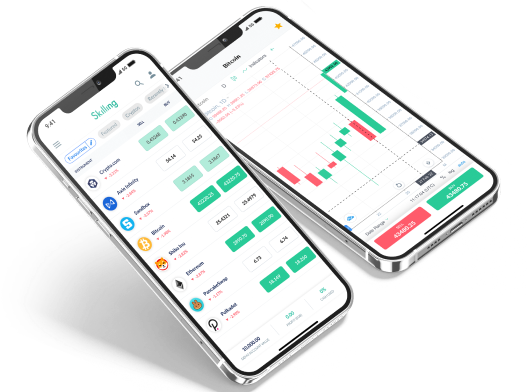In trading, understanding book value holds the key to unlocking hidden trading opportunities. But what exactly is it, and why should traders pay attention to it?
Book value definition
Book value is a financial metric that represents the net worth of a company based on its balance sheet. It is calculated by subtracting a company's total liabilities from its total assets. In simple terms, book value reveals the theoretical value of a company if all its assets were to be liquidated and all its debts were paid off. It is an important indicator used by traders and investors to assess the financial health and intrinsic value of a company.
What better way to welcome you than with a bonus?
Start trading with a $30 bonus on your first deposit.
Terms and Conditions apply

Example
Let's consider an example to understand book value better. Imagine a fictional company called XYZ Corp. XYZ Corp has total assets worth $10 million, which includes cash, property, inventory, and investments. The company also has total liabilities of $5 million, which includes loans and outstanding debts.
Formula
To calculate the book value of XYZ Corp, we subtract the total liabilities ($5 million) from the total assets ($10 million). Book value = total assets - total liabilities = $10 million - $5 million = $5 million.
In this case, XYZ Corp has a book value of $5 million. This means that, based on its balance sheet, the company's net worth is $5 million. Traders and investors could use this information to assess the financial stability and value of XYZ Corp when making trading and investment decisions.
How can traders use the book value?
Traders could use the book value in several ways:
Assessing intrinsic value: It provides traders with a glimpse of a company's intrinsic value. By comparing the book value per share with the market price per share, traders could determine whether a stock is overvalued or undervalued. If the market price is considerably lower than the book value per share, it might indicate a potential opportunity for buying the stock at a bargain.
Evaluating financial stability: Traders could use it to assess the financial stability of a company. A higher book value suggests that a company has more assets than liabilities, indicating a stronger financial position. This information can be crucial, especially during market downturns or economic uncertainties when traders seek to minimise risks and invest in financially stable companies.
Identifying value stocks: Value investors focus on finding stocks that are undervalued by the market. They look for companies with solid fundamentals but are trading at a discount. The book value plays a significant role in identifying such value stocks. When the market price falls below the book value, it may indicate an opportunity to buy the stock at a lower price relative to its intrinsic value.
Capitalise on volatility in share markets
Sign upTake a position on moving share prices. Never miss an opportunity.
![]()
Assessing tangible assets: The book value allows traders to assess a company's tangible assets, such as property, plant, and equipment. By analysing these assets, traders could gauge the company's financial strength and potential for growth. For example, if a company has significant tangible assets, it may signal that the company owns valuable resources that can be utilised for future expansion.
Analysing debt levels: It could also be used to evaluate a company's debt levels and its ability to meet financial obligations. By comparing the total liabilities to the total assets, traders can determine the debt-to-equity ratio, which shows the proportion of debt in relation to the company's equity. A high debt-to-equity ratio may indicate higher financial risk, whereas a low ratio suggests a healthier financial position.
Tracking company performance: Traders could track changes in the book value over time to assess a company's performance and growth trajectory. Increasing book value over multiple periods could indicate that a company is generating profits and accumulating assets. Conversely, a declining book value may raise concerns about deteriorating financial health.
Comparing companies within industries: Traders could also use it to compare companies within the same industry. By examining the book value ratios of different companies, traders could identify potential outliers or anomalies. This comparative analysis could assist in identifying trading opportunities or understanding market trends within specific sectors.
Experience Skilling's award-winning platform
Try out any of Skilling’s trading platforms on the device of your choice across web, android or iOS.

Boost your trading knowledge
Looking to boost your trading knowledge? Check out our educational blog filled with valuable insights and tips to enhance your trading skills. Visit the Skilling blog now and take your trading game to the next level!












